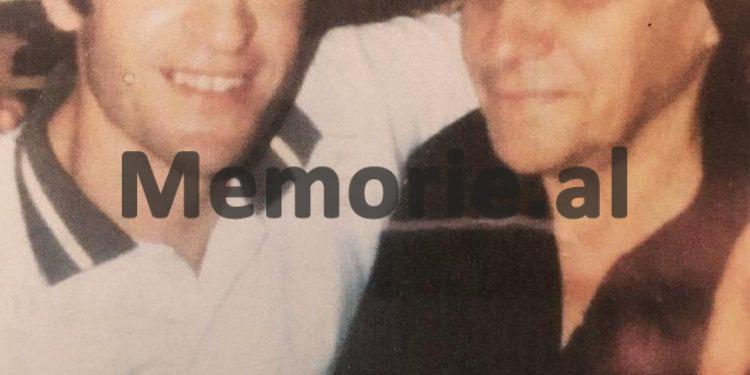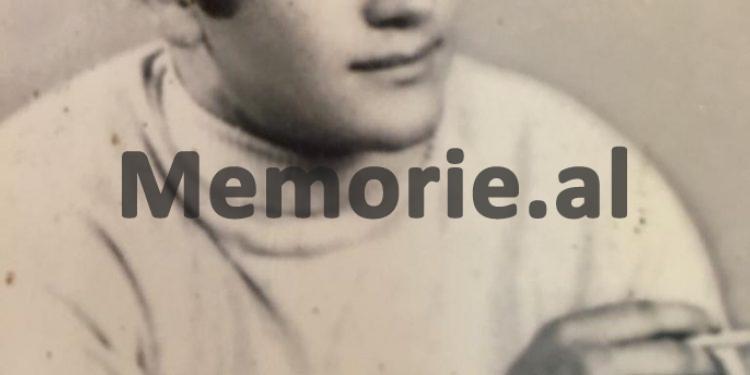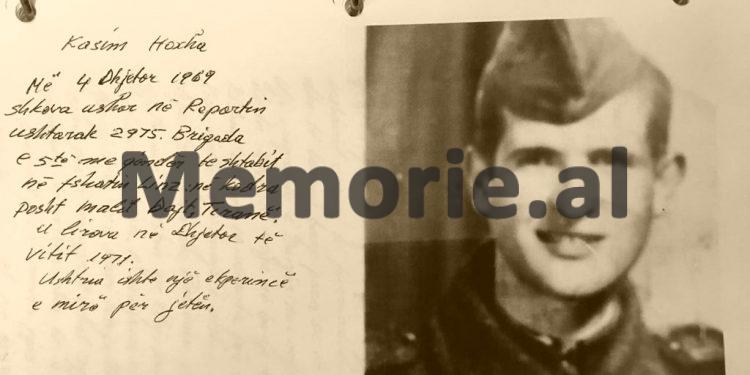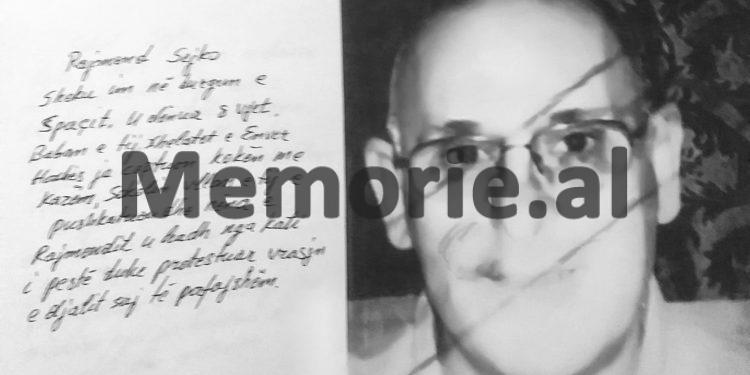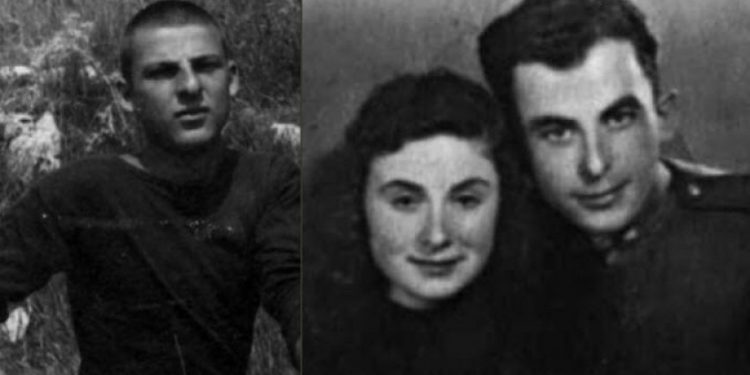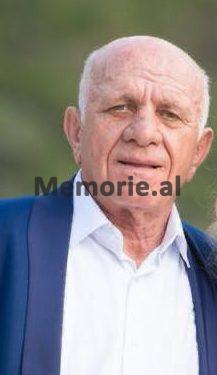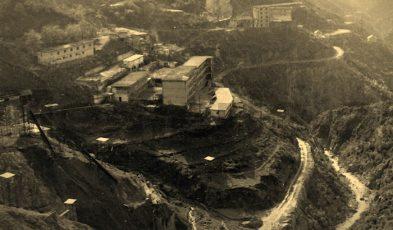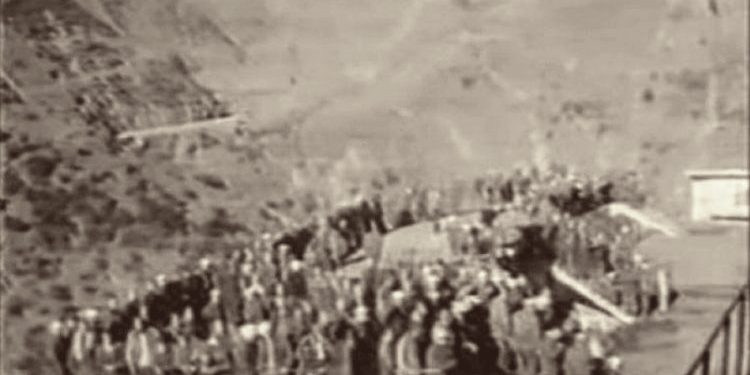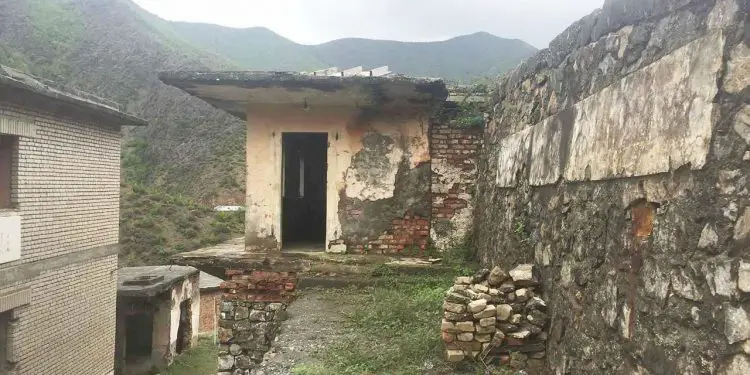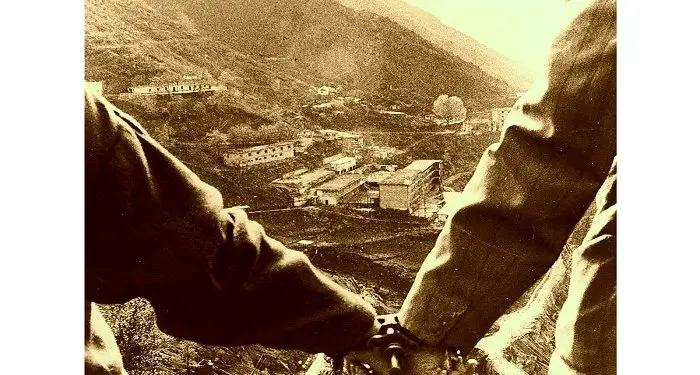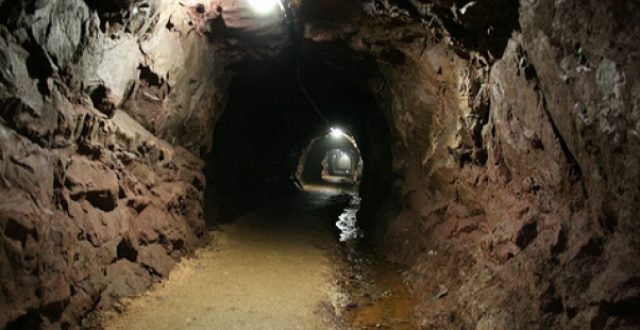Dashnor Kaloçi
part nine
Memorie.al publishes some parts of the voluminous autobiographical book in manuscript “Beautiful land, ugly people” (memories from hell) by the author, Kasem Hoxha, originally from the village of Markat in Saranda and living in the USA since 1985, when he fled Albania after suffering ten years in the prisons of Enver Hoxha’s communist regime. The whole sad and painful story of Kaso Hoxha, from the life and hard work in his village in the southernmost part of the country, the dissatisfaction with the regime and the first poems of a political nature, how they fell into the hands of the State Security and who were his relatives who spied on him, the arrest in the office of the Chairman of the People’s Council of Markat village, by the State Security on June 21, 1973, the investigation in the Saranda Branch of Internal Affairs, the trial against him and the sentence with 10 years in prison for “agitation and propaganda”, staying in “Kaushin” of Tirana (Ward 313), and the prisoners he found there, being sent to Spaç and working in that camp with criminal and “soft” police officers, the accomplices of description of their “portraits” with positive and negative sides, release from prison and return to the countryside, escape to Greece and stay in the Lavros camp, gaining political asylum in the USA, correspondence with Amnesty International, e London branch, inf information with the data he sent to the prisoners of Spaç and the communist regime in Albania, to the creation of a new family and life and work in that distant place with the Cham community divided by the intrigues of the people of the State Security from Albania operating there.
Excerpts from the manuscript book, “Beautiful land, ugly people“, (memories from hell) of the author, Kasem Hoxha, sent by him exclusively for Memorie.al
Prologue
Dear readers!
Do not pay attention to the title I am presenting to you, I mean, if you are not patient to read this collection of memoirs, if you want to forgive the author, that his style is pale, uninspired before this drama of great, of my people, of my martyred nation.
My characters are not created by my imagination, but are real people, they are your brothers, your fathers, your relatives. The events are not fictional, but real and lived. You will convince yourself, only after reading this summary with memories. You will find something from your life, something real from the lives of your fathers, your mothers, your brothers, how they suffered and how they died.
I wrote this collection of memories about the legacy left to me by my friends, for the world to learn the truth, how innocent people were tortured, how they suffered, how they died, in the camps and prisons of the executioner, Enver Hoxha!
I go with the hope that any reader, Albanian or foreign, is not left with hatred, from criticism, beating opposing opinions, as it is the best way to find the truth. The title of the book, “Beautiful land, ugly people”, will anger the reader, but in the end, I will conclude that I have the right to call it “The 45-year era of the satanic communist regime of Enver Hoxha”: Ugly.
I, alas, for the misfortune I had, saw and lived the great drama that happened before my eyes. I am neither a poet nor a orator, I will need hard work to escape the literary mistakes in this historical book, which can inspire future poets and writers, on the tragedy of our time, of the darkest time of my nation !
Ladies and Gentlemen, I wish you all freedom and peace…!
Kaso Hoxha.
Llavrio, Greece 1985
Continued from the previous issue…
“I was in heaven and now I fell to the bottom of the abyss.” Two tears came out of his eyes, and rolled down his cheek, leaving a wet line. I was so sorry when I saw him in that condition. “Nothing to do with life is an alternative to suffering or victory. “The wheel of fortune spins as it pleases, but do not be pessimistic about the life God has given you,” I continued.
“Ah no Kasëm, now everything is over for me”, whispered Dilaveri. “I was 22 years old when I fled Albania to Greece. I was a physical education teacher and I liked sports. When I came out to Greece, I was so excited that I came out of hell. I applied to immigrate to Sweden, and within three months, my application for a Swedish visa was approved. There I attended a school, Teknikum in Electronics. I was given a job at a factory that made telephones. I later married a Swedish girl, and I was happy. But I had no children with this woman. I lived in a nice house on the outskirts of Stockholm, and occasionally went on vacation to Greece, Spain, Portugal, France, and so on. When my wife died suddenly and I was left alone! I was so upset. One day I went to the Albanian embassy in Stockholm. I asked to be guaranteed my return to Albania. They promised to set me free. I came to Albania, taking part of my movable property. The money amounted to 30 million Albanian lek. But these thieves robbed me alive, taking my body clothes, and the watch I had in my hand. Now I am with you Kasem in this cold dungeon”!
This was Dilaver’s confession, and in general, I realized that with his person was hidden a great enigma about his life, and his dead wife. Dilaver had no answers to many of the questions I asked him about his past. Too suspicious. He was sentenced to 20 years in prison. The trial was held behind closed doors. Dilaver was living the most difficult moments of his life, disappointed and pessimistic to come out of this abyss alive. His stories were a good lesson for me who wanted to know things about the world.
After some time in Spaç came Kipe A…. Surprisingly, it is something mysterious that even today I wonder how this man was found in my “Kaushin”?! He entered the room together with the prison warden, Jorgji Zgur, who accompanied him and told him where he would sleep. He greeted all the prisoners when he entered the room. “My name is Kipe A…, I am sentenced to 10 years in prison, and I come from Canada.” This impressed me a lot, especially the way he spoke. A speech as if it had flaws and psychological problems. I thought he would have been tortured a lot.
All the prisoners became curious and bombarded him with questions. Someone asked him if he had known his relatives abroad, while another asked him how much was the salary of a worker abroad, etc., etc. A prisoner asked him which side of Albania he was from. “From Shales of Saranda,” he told her. Then I raised my head because I was reading something and curiously noticed the young prisoner. Bardhosh Gjonzeneli, asked “Do you know Kasëm Hoxha, he is on your side”, showing Kipe the bed where I slept.
I invited him to sit at the bottom of my bed, extending his hand. He sat down and asked me: “Do you know Selfo and Rexhep Hoxha”? I told her they are my cousins. “Where did you meet them?” I ask Kipen? “I met them in the US, after living there for about 10 years, and some time in Canada.” This is how this man, whom I did not know, answered me with a little shyness. I left with that, and told him that now we go to work (we were shift III), but we will talk the next few days. And so, it happened, as I told all my friends about the arrival of Kipe A…, who had lived in Canada and the US.
We were incredibly curious about his life in the western world. Kipja had known all Albanian emigrants and this made me doubt. I had heard that this man was privileged by the regime of Enver Hoxha. He worked in the Security organs, in the Elbasan Police. Kipja told me he was unhappy, and so fled to Greece. He later emigrated to Canada, from where he joined a group of Chams living in Chicago, USA. There he became acquainted with all the Markanjots, where they lived and what work they did.
Kipja told me: “On Sunday we will sit down and tell you more about their lives”. I immediately asked him: “Why did you leave and come here to prison, at a time when people are making sacrifices, putting their lives in danger, going out into the ‘Free World”?! Kipja had no answer, put his lip to the gas and slapped me on the shoulders, saying: “I will tell the story of my life.” The copy was from Shales, Mines’s brother, Rauf D gru’s wife, from Markati. When Kipja escaped, the government did not touch Mina, Kipa’s sister, nor Rauf, at all, even though he was a fanatical communist by birth?!
However, I was looking forward to Sunday to learn about the lives of my relatives, Selfo Hoxha, Rexhep Hoxha, Zeqo Kola, my mother’s first cousin, the villagers, Skënder Xhelo, Selfo Hysa, Bajram Shuaipi, Dragon Idrizi, Met’hat Idrizi, Veiz Sulo, and many others. After we had lunch, I invited Kipen to come to my room. Kipja was too slow, he had almost lost it! Probably did not expect this strike from the regime he served before fleeing!
I said to Kipe: “I want you to tell me first, what work did you do before you left Albania, why did you escape, where did you live, what did you leave behind and how did you escape and where did you go” ?!
“Ohhh ‘said Kipja, as if in surprise:” You will also make me an investigator now, I suffered a lot for six months “, he continued, to avoid his past before escaping. The explanations he gave me for his escape were extremely absurd and unbelievable to me!
The story of Kipe A…, how he escaped from Albania and why he came back again…?!
“It was early in the morning, when I crossed the border in Vërvë, the soldiers shot me with a machine gun and I escaped in vain. I was handed over to the Greek Post Office and from there I was sent to the Refugee Camp in Llavrio, where I applied for immigration. I wanted to go to the US, because there were a lot of people on our side. I waited a long time, but I did not go to the US, as I went to Canada. Accepted. I went to Canada where the Immigration Office stabilized me at work. The work was easy, I was cleaning a bank at night, in the city of Toronto. Later, I connected with Skënder Xhelon and other Markaqotë, all of whom lived in Chicago. One summer I went and visited them, they welcomed me with lunches and dinners. Bajram Shuaipi worked as a porter in a restaurant, where the owners were from Mursia of Saranda, the brothers, Hajazi. Bilal Xhaferri, deals with the publication of the magazine, “Krahu i Shqiponjës”, and also with the organization “Lidhja Çame”. Lately things are not going well, as they are divided and quarreling over who would be the mayor?! At a meeting, where I was, they pulled out the cobras and almost killed each other! So, it seems to me that they closed it and that organization no longer existed. But Bilali continues to publish the magazine, “Eagle’s Wing”, even though they tried to kill him in New York. “This is, in general, the life of the villagers in Chicago,” Kipja concluded.
“Okay, but you did not tell me anything about yourself”, I intervened, wanting to know more, why this man left the civilized world and came to “hell”, to work as a slave in the galleries of Spaç. Kipja felt close to tell me the reason that forced him to leave “paradise” and enter “hell”! Kipe A…, told me, that: ‘the cause of all this suffering, was his wife, Zuzana’.
He told me that it made his life unbearable, impossible for him to live in Canada. Kipja made his life and mission in the ‘Free World’ even more dubious. I came to the conclusion that: this man was the filthy spy of Enver Hoxha’s regime, to disrupt and sabotage the organization, “Cham League”. I told Qani and some close friends to be careful when talking to Kipen.
One day, where we were sitting and warming up in the sun, I could not bear to hear his provocations and I said to him: “Kipe, I have been living here for seven years and I made friends with all categories of people, where I learned many things that are difficult you teach them in the most famous universities of the world. Please do not be the one who is not, be honest with me and your friends. You were sent on a mission from Tirana, right?! That’s all I want to know and stop flattering “, I concluded, nervous from Kipe Avdiu’s provocations.
He left without saying a word and said to his friends, “You can’t talk to Kasem”! For me, his two-page person did not matter at all. From that day on, he did not speak to me and changed his ways when he looked at me. This would surely report to the Security Services my interest in learning about the lives of my relatives and all of my fellow villagers living in the United States.
Enver Hoxha’s regime used various forms, most typical to defeat, break, and physically eliminate all his opponents. Not only within the country, he threw his brother against his brother, but also in the ‘Free World’, where Albanian emigrants lived, he sent spies and agents to keep this divided community. One of them was Kipe A…, with a failed mission and for this reason he ended up in Spaç prison.
But Kipja was not alone, there were many others who had been in the western world, where many of them had confirmed with their mouths, that they were sent on a mission from Tirana. Qani Sadiku did not believe that Kipja was an agent and for this I advised him several times to be reserved not only with Kipja, but also with other spies. Qani did not want to know, but he loved everyone equally.
One day, Qani was called to the office by the Prison Security Operative (whose job it was to gather information about each convict, how he thinks and what each convict has in mind), and asks him: “Where are you from? “? “From Markati” answers Qaniu. “How far is Janjari from Markati”, he asked Qaninë, who had heard that the new operative was from Janjari of Saranda and immediately said: “Why, sir, go to Janjar by plane”?! “You never did that on foot,” Qaniu asked. He, offended by Qani’s question, replied: “With this head you have, you will suffer a lot and you will pay dearly…”! “What do you want, where is your trouble”, Qaniu returned to him.
How were the two secret organizations discovered in Spaç prison?!
Thus, as far as Qaniu understood, the Security Operative was well informed by someone about Qaniu’s activity, who attended meetings organized by a group of prisoners who had formed a secret organization, led by Xhelal Koprencka and Irfan Vrioni.
The organization had a Democratic-Conservative platform, while the other organization led by Vangjel Lezho and Fadil Kokomani, had socialist tendencies and was inspired by the East.
Meanwhile, the spies were doing their job and some had even infiltrated within the ranks of these groups, receiving information on which of the prisoners were part of it, who were later all exposed.
And indeed, it did. The prison warden who was already Dhimo G ((from Mursia in Saranda district), had a list in hand and called the names: Xhelal Koprencka, Irfan Vrioni, Vangjel Lezho and Fadil Kokomani. “Those who heard the names should report to the guard officer,” the tellall ordered. After a while we found out that all four of them were arrested. It was well known that they were not alone and “Who is next”, the prisoners asked themselves?!
The situation in the prison was already extremely tense and a group of heavily armed police officers were patrolling day and night. The next day, the police arrested 10 prisoners, among them Fatos Lubonja, Vladimir Balluku, Spartak Ngjela, Sherif Merdani and Bardhosh Gjonzeneli, who always murmured: “Flies live on horseback, we live too”?!
Qani Sadiku, Gëzim Medolli and other diuses who do not remember their names were also arrested. Meanwhile, my friends, Xhelal Çami, Nazmi Veshi and Rajmond Sejko, and I were waiting in line because it was clear that we could not escape the physical elimination of the communist regime of Enver Hoxha!
Meet Raymond Sejko, the son of the former Admiral of the Fleet
Raymond was a wise, honest, and respected boy by all the prisoners. Raymond knew how to choose his friends, he did not talk to anyone, because he knew very well that the spies were around. In his spare time, we stayed together, he was sentenced to eight years in prison. We were discussing whether they would set us free if we finished prison!
Although Raymond was overly reserved, he told me about his family tragedy. It hurt deep in my soul when I heard all that drama. I knew that his father, Teme Sejko, was innocent and for this I had written that the trial of Teme Sejko was prepared by Enver Hoxha himself to hit and execute the “Cham Group”, accusing them of being traitors who they wanted to overthrow the popular dictatorship “, ostensibly with an armed uprising.
Enver Hoxha’s ignorant people used the most inhumane tortures to force them to accept the accusations made against them, as “agents of the Greeks, Yugoslavs and Americans, coordinating with foreign powers the occupation of Albania”. In court, it was clear that Teme Sejko was reading what had been written by the dirtiest executioner, the “Butcher” of Enver Hoxha, Arianit Çela, who was the General Prosecutor.
Temja claimed in court that he “was in contact with the Americans, the Yugoslavs and the Greeks” and that Costa Fili appeared as a witness in that trial to establish links with Greek Asfalina. Teme Sejko also admitted that he had also met with Haki Rrushiti and Panajot Plaku who were in exile. After the trial, Haki Rrushiti published his article entitled “Denial”, where he said that: he had never met Teme Sejko!
Hakiu wrote there that he had as much connection with the Greek Asphalt, as he could have with the communists of Tirana! Teme Sejko was executed there in mid-1961, along with Tahir Demi, Abdyl Resuli and Hajri Manen. Their shooting was accompanied by the imprisonment of dozens of others with severe sentences, but this would not be the end of the Albanian tragedy. The persecution continues.
Conversation with Raymond, about the truth of his family tragedy
I met Raymond Sejko in mid-1976. He had been in Spaç prison for more than two months, but he was in the next shift and in zone I, and I was in the next shift and in zone III, and so we could not meet. One Sunday, I was sitting on a bench in the prison yard and was sitting alone. I was approached by a tall boy, slightly crooked, sharp-faced, with a long, drooping nose, two eyes under black eyebrows expressing natural ingenuity and intelligence. “How are you Kaso”, he told me and extended his hand to the ground…!/Memorie.al




